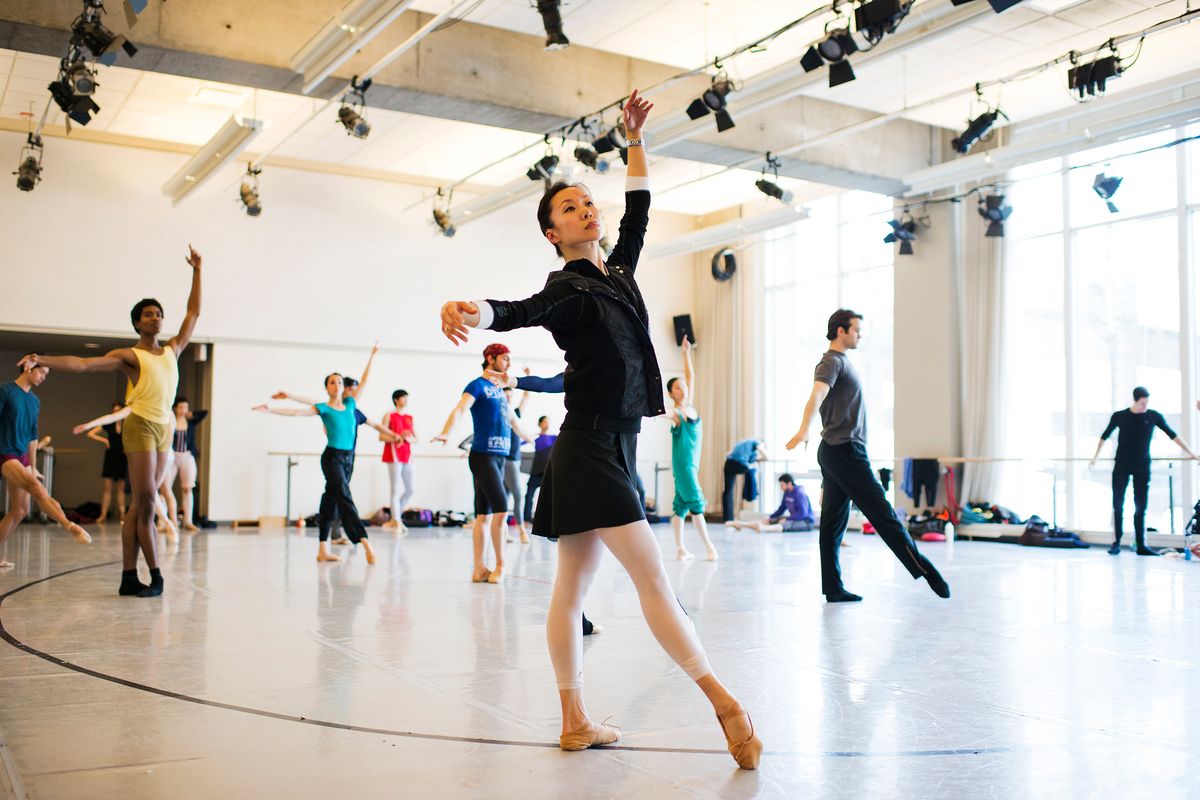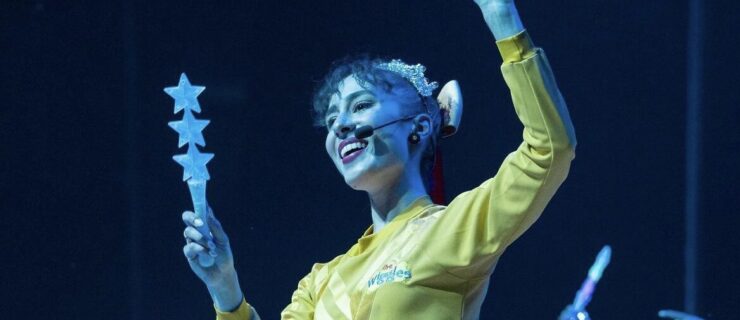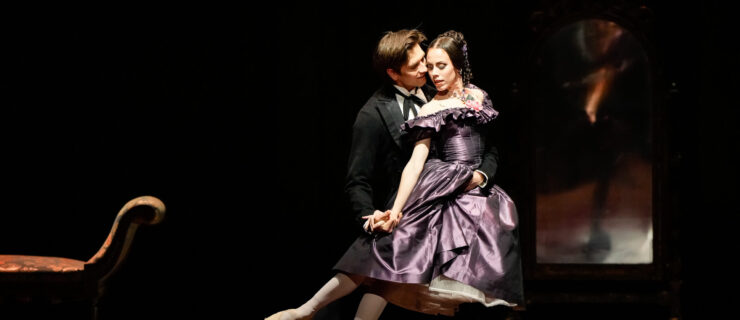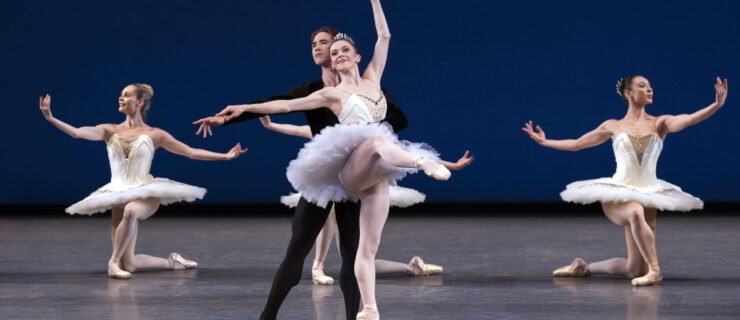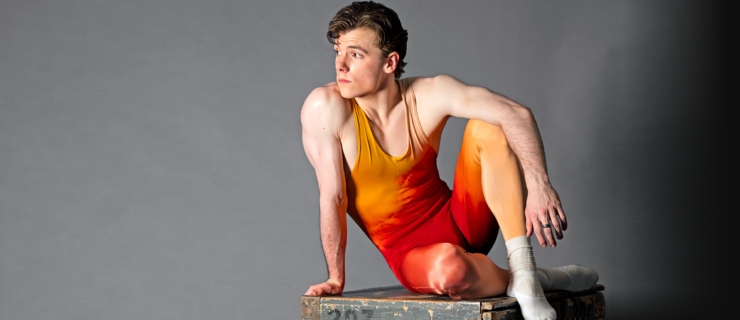Xiao Nan Yu Reflects on Retiring from National Ballet of Canada After 22 Years
On June 22, National Ballet of Canada principal Xiao Nan Yu will retire from the stage after 22 years with the company. Originally from Dalian, China, Yu studied at the Shen Yang School of Dance and the Beijing Dance Academy before coming to Canada’s National Ballet School at age 17. She joined the National Ballet of Canada less than two years later, and was promoted to principal in 2001.
“She is a supreme dance actress with an innate ability to bring the audience into her world,” says NBoC artistic director Karen Kain. “Nan has always brought such a calm confidence into the studio and has been a role model for so many dancers I will miss her generosity both inside the studio and out.” We spoke with Yu as she prepared for her final week of performances. She opened up about her initial culture shock upon moving to Toronto, her thoughts on artistry and why she chose Hanna Glawari in The Merry Widow as her final role.
How did you wind up at Canada’s National Ballet School?
I was competing at the Prix de Lausanne, and the principal of the Ballet School was on the jury. After the competition she offered me a scholarship to come and study. I was graduating the next year, and I thought, What a great opportunity for me to try out what ballet is like in the Western world.
You arrived in Toronto without speaking a word of English. How was that transition?
Oh, culture shock for sure! But I was really well looked after. The kids were super-friendly, and when you’re young, you pick up the language really quickly. I took English classes, but being with my friends and classmates really helped. The school also set me up with a family that took me under their wing, to give me a connection outside of the school, and they brought me into the Chinese community and helped me integrate into society.
And ballet class was fine. I’d been to competitions, and could understand when people were giving corrections, when the only way we could communicate is through the ballet language. It is an international language, so when I stepped into the studio it felt like home.
After barely two years in the school, you joined NBoC. What were those early years like?
When you’re young and joining a company, you really try to see how you fit in, and what you can learn from the professionals, because there’s a big age gap. A nice surprise was when I got to do leading roles when I was in the corps de ballet. Our previous director, James Kudelka, wanted me to do the lead in Swan Lake when I was 21. That was my first big role and that was really wow!

Yu in Onegin
Aleksandar Antonijevic, Courtesy NBoC
How did you find out you were being promoted to principal?
At the end of the season James called me into the office and said, “I think you’re ready,. I’d like to promote you to principal,” and I was like, “Are you sure?” Had I done enough ballet to have the experience to take on these roles? But at the same time it was exciting, because he trusted in me and believed that I could carry on this title to be the center of the whole ballet. I also felt like I needed to work extra hard to prove to myself and to him that I could do it.
Has there been a point when you felt like you didn’t have to prove yourself anymore?
I wouldn’t say that I need approval for how I dance, but it’s more about what I can offer. As artists it’s really important to know who you really are and what you can do; it’s not about pleasing others, it’s about the trueness of the artistry. If you wait for approval then you lose your individuality and uniqueness. Throughout my career I’ve been told bluntly that I wasn’t suited for certain roles; if you have the mentality that if you can please them you’ll get the role, you’re set up for huge disappointment. It’s important for artists all over the world to realize that they’re good enough for what they do.

Yu in rehearsal for The Sleeping Beauty
Karolina Kuras, Courtesy NBoC
What are some of your favorite principal roles?
Tatiana in Onegin and Giselle. I love all the big classics, also Juliet. When I first started out I wasn’t quite used to the contemporary, or even Balanchine stuff, but I have enjoyed jumping over that barrier. When things are frustrating, it’s nice to make sense of it and be able to find joy in it. There’s nothing worse as an artist than doing a piece you really don’t enjoy.
The roles that you’ve listed all have a big acting component. Have you always loved that aspect of performance?
When there’s a story line it’s, of course, easier to carry on throughout the ballet. But ballet itself is a body language; there are no words to be spoken onstage, so I find it fascinating how you can transform your body to tell the story. Very small gestures can tell totally different stories. We just finished Anna Karenina with John Neumeier, and some of the steps are quite modern, but you’re able tell through the steps what he wants you to express to the audience. It’s different than classical ballet, but it was amazing.
How did you choose to dance Ronald Hynd’s
The Merry Widow for your retirement performance?
I talked to Karen about how I wanted to finish my career. I have many favorite ballets, but if I were to pick just one it would be really unfair to the others. I’ve always loved the role of Hanna in Widow because she’s confident, she’s glamorous, she’s fun and she’s very sure of what she wants to do, which sort of reflects how I feel right now at this age, and in my decision regarding retirement. And overall it’s a heartwarming story, and the music you can’t just not fall in love with. It’s a celebration; finishing on a high note.
What do you think is the secret to having such a long career?
It’s a tough profession. The constant training, and mental and physical challenge. Sometimes being picked by the color of your hair or the length of your legs, it’s really picky. But you’ve got to be mentally very strong, and you’ve got to love it.
And my warm up is longer—it it was a half hour before and it’s gone to an hour. I have physio and I have massage. The company’s medical team is amazing.

Yu in Swan Lake
Cylla von Tiedemann, Courtesy NBoC
You have two children, ages 14 and 17. How has being a mother affected you as a dancer?
It made ballet more precious. Before I became a mom, my world was ballet and my own time. After I became a mom, it’s being a mom and ballet; there’s hardly ever my own time, so each time I come to work it’s precious to me because I know when I go home I don’t have the luxury to sit in front of the TV and watch videos to study and sew my shoes. When I go to the studio I don’t have any time to waste. I really use every single second.
What’s next for you?
I’ve been talking with the Ballet School, and they’d love to have me back to teach. I’ve been teaching on and off, though dancing in the company was my full focus. I’ve even taught company class. After being a professional for 23 years, there’s a lot of experiences you can really deliver to the younger generation, so I’ll definitely stick around the ballet world.
